The 990FX Chipset Arrives: AMD And SLI Rise Again
AMD is laying the foundation for its Socket AM3+, Bulldozer-based Zambezi processors with the 990FX chipset, functionally identical to 890FX. The big news is that motherboard vendors are licensing SLI again, and we want to compare performance to Intel.
990FX: Socket AM3+ Meets SLI
Generally, platform reviews accompany new processors. But in the case of AMD’s 990FX chipset, there’s both good and bad news.
The good news is that AMD still has a fantastic compatibility story. So, 990FX supports today’s Socket AM3 processors and the upcoming AM3+ CPUs based on the Bulldozer microarchitecture.
The bad news is that those Bulldozer-based chips are still not ready. Processors based on the B0 stepping are in the hands of motherboard manufacturers. But they’re all telling me that performance is nowhere near what they were expecting, and it’ll take another stepping to fix them.
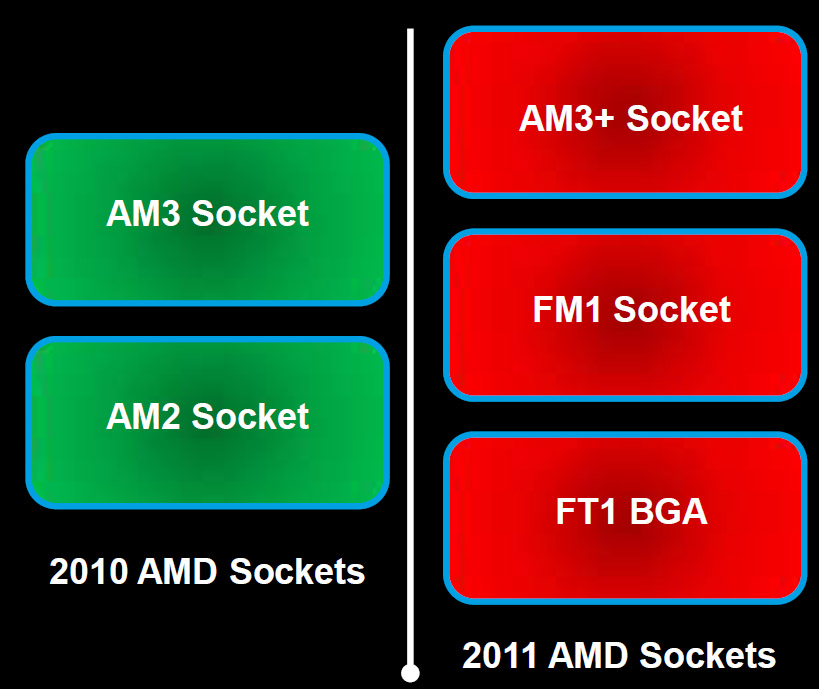
Technically, you could buy a 990FX-based motherboard today and drop in an existing Phenom II. But if you’re really lusting after a six-core Zambezi-based chip, it’d be better to simply wait a couple of months. Unless there was another reason to upgrade…
990FX: Same As 890FX, But Guaranteed Compatibility
The 990FX chipset employs the same silicon as 890FX. Didn't know today's launch was happening? Didn't know 990FX would be so similar to 890FX? If you were following me on Twitter, you would have! ;)
According to AMD, it’s incrementing the platform name to clarify compatibility with Bulldozer-based processors. When you see a board that centers on 990FX, the company wants you to know that its upcoming AM3+ CPUs are drop-in-compatible (again, 990FX-based boards will also take existing AM3 chips).
Get Tom's Hardware's best news and in-depth reviews, straight to your inbox.
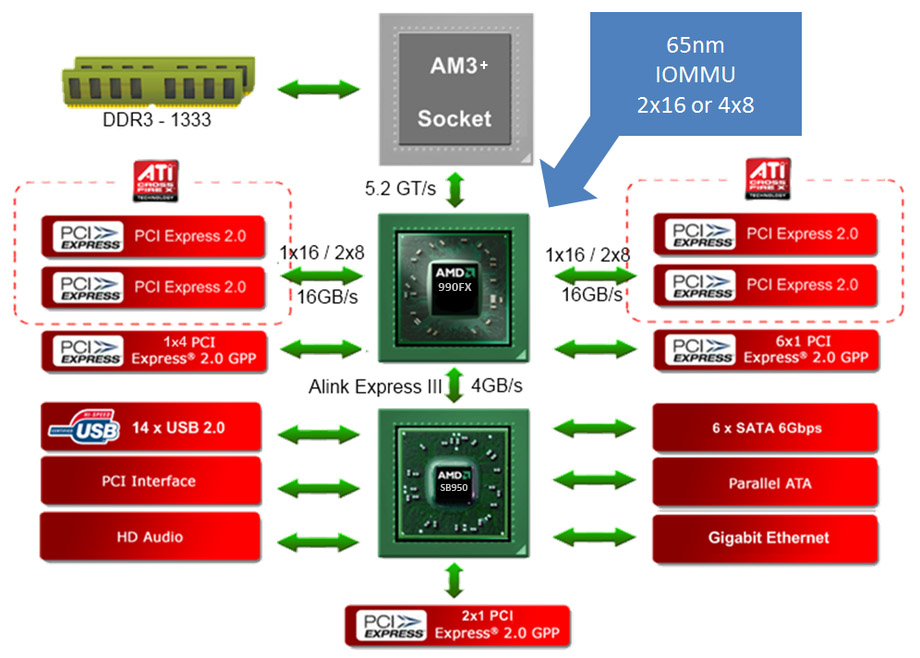
You need the 942-pin Socket AM3+ (AM3b) interface, though, in order to support Zambezi’s power and frequency management features.
Conversely, AM3+ processors also drop into Socket AM3 motherboards, given a BIOS update. Depending on the company that manufactured your AM3-enabled board, there may or may not be a firmware upgrade available immediately. So, understandably, AMD doesn’t want to leave the question of compatibility up in the air.
Update (4/29/2012): Much time has passed since AMD made the claim that AM3+-based processors would drop into Socket AM3-equipped motherboards. A few models with AM3 interfaces do support CPUs centering on AMD's Zambezi design, but most do not. If you own a platform with an AM3 interface, check before buying an FX processor. More than likely, you'll need a new motherboard with Socket AM3+.
Even with a new firmware, though, you won’t get those aforementioned features on an AM3 platform. Also, 890FX and 990FX both support HyperTransport 3.0 with transfer rates of up to 5.2 GT/s. According to MSI, 990FX adds HyperTransport 3.1 support with signaling up to 6.4 GT/s (apparently something we’ll see from the eight-core Zambezis).
I’m not a fan of rebadging, but in this case, it’s a necessary evil. Sure beats murdering a processor interface every time you introduce a new architecture (*cough* Intel). Most enthusiasts will probably want to upgrade anyway to match Zambezi and AM3+. But it’s nice to know that AMD has its eye on the backward and forward compatibility of its processors and platforms.
SLI: A Pleasant Surprise
More pertinent than any AM3+ discussion, at least today, is the addition of SLI support on 990FX boards. Frankly, there’s nothing stopping the motherboard guys from licensing SLI on 890FX as well, but nobody I’ve talked to has plans to do that. Instead, it looks like SLI will be used as a differentiator to get gamers stoked about upgrading their processor and motherboard when the FX-series (Zambezi) chips launch.
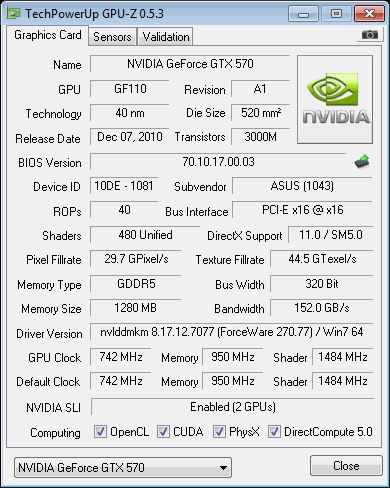
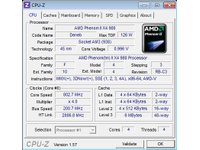
As with Z68 Express, two-way SLI and CrossFire configurations are easily supported. AMD’s 990FX hits with 42 PCI Express lanes, giving each slot on a dual-card config its own 16-lane link (compared to Intel’s two x8 links). Don't get too worked up about this "advantage." Eight lanes is still enough for Intel's parts to compete aggressively. Don't believe me? Check out Thomas Soderstrom's three-part series on multi-card scaling.
Because 990FX boasts so much second-gen PCI Express connectivity, it doesn’t require NF200 to support three-way setups, though. Both of the 990FX boards that landed in our lab accommodate two- and three-way configurations (x16/x8/x8), along with quad-GPU arrangements using cards like GeForce GTX 590 and Radeon HD 6990.
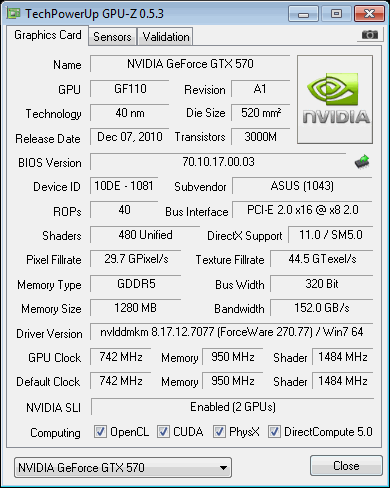
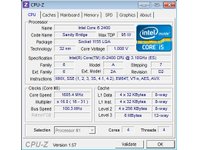
Without AM3+ processors to test, today’s 990FX launch only has one really interesting angle: SLI-based performance using a Phenom II X4 980 versus Intel’s Core i5-2400, both configurations armed with a pair of GeForce GTX 570 graphics cards. The comparison couldn’t get any more even. Our P8Z68-V Pro sells for the same $210 Asus plans to ask for the Sabertooth 990FX, and the Core i5-2400 sells for $5 more than AMD’s Phenom II X4 980. With all other components equal, this is a true head-to-head.
So, is the return of SLI support to AMD’s chipset family worth an upgrade? Let’s find out!
Current page: 990FX: Socket AM3+ Meets SLI
Next Page 990FX Boards From Asus And MSI-
nice to see support for both videocard producers. especialy for nvidia. now you can do amd+nvidia not only amd+ati(amd)Reply
-
stingstang Tom's, what the hell is this? "At the end of the day, it's the graphics cards which are the bottleneck."Reply
Did you go about benchmarking graphics cards, or was this a motherboard/cpu comparison? I'm tired of hearing this excuse all the time. We know you have a pair of 6990s and 590s in your shop. Get rid of that stupid bottleneck and DO IT RIGHT! -
saint19 I'd keep in mind that this performance review was made it with an AM3 CPU and not with the new generation.Reply -
-Fran- Thanks for the review, but at lower resolutions we all know that the CPU differences will become clear. So you just proved that if a game is taxing on the GPUs, both solutions are equal and when the graphics card ain't being taxed, CPU differences become apparent... Ok, thanks for proving what we already know once more (not being sarcastic here >_Reply -
-Fran- Uhm... that last comment of mine was cut in half with the missing char of that face... I guess that's an escape char; oh well.Reply
What is missing said something like:
...here "face"), but you said you wanted to test AMD's SLI on their 990FX vs Intel's SLI. So, IMO, you need less graphics horse power: like 2 GTS250's or 2 GTX460's or 2 GTX560's (not ti's) to tax the graphics subsystem and really show the differences. Maybe up the resolution also to really show if there is a difference between AMD's or Intel's SLI.
Thanks again for the Article, Mr Chris.
Cheers!
